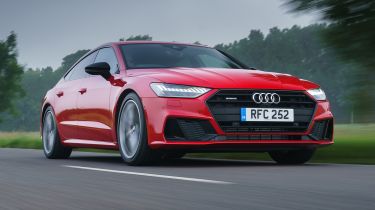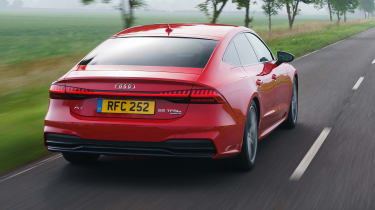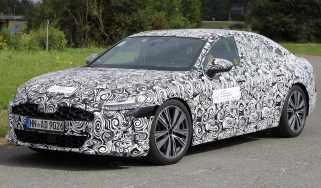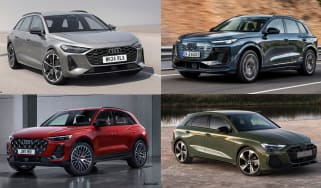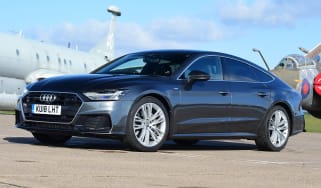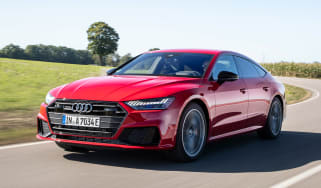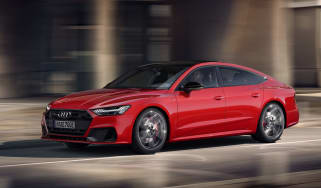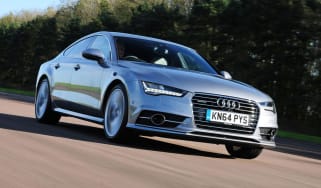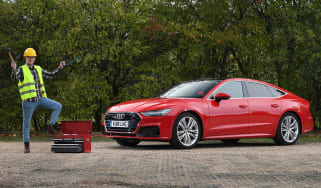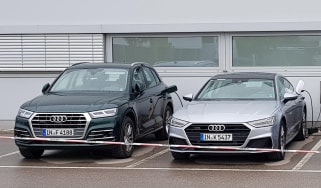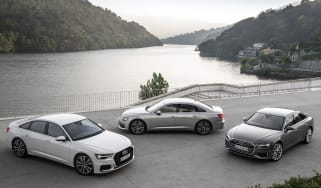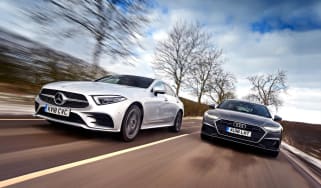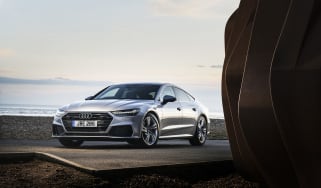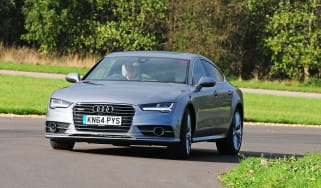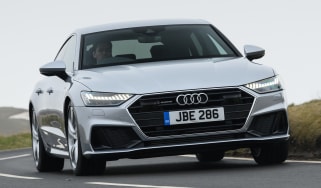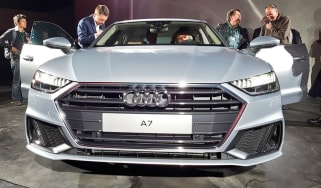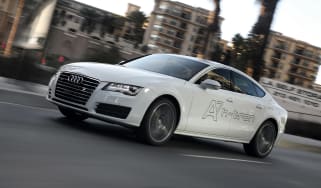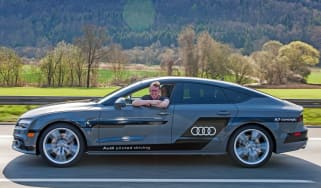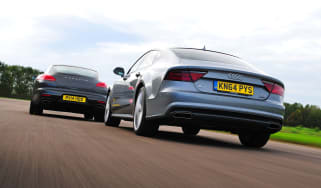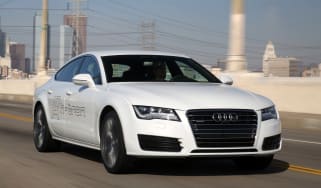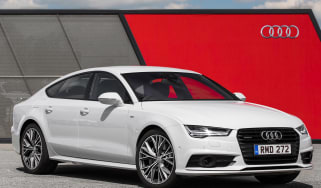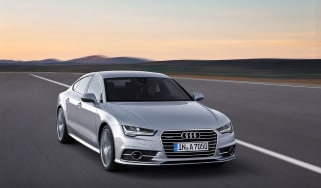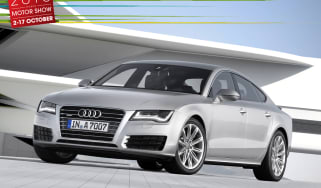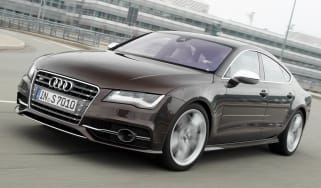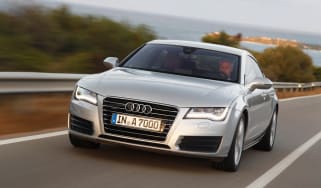Audi A7 Sportback review: great to look at but so-so to drive
The Audi A7 Sportback blends style with a decent amount of substance, but it’s not the most engaging driving experience

The Audi A7 Sportback adapts the formula of its predecessor to make a more resolved and desirable package. Not only is the design more cohesive and appealing, but the car is also lighter and better to drive. The interior also moves the game on in terms of design and technology, with a range of clever autonomous features and slick displays that help to justify the A7’s high-end market position.
The A7’s petrol and diesel engines are strong performers, and thanks to mild-hybrid tech, the official economy figures are impressive. The drive majors on maturity, refinement and composure, although that does mean the A7 isn’t as engaging to drive as a Porsche Panamera. However, there’s little doubt that the A7 is still an appealing prospect.
The Audi A7 Sportback sits on Volkswagen Group’s MLB Evo platform, closely related to the A6 and flagship A8. Unlike its saloon siblings, this car has a sporty appearance courtesy of its wide, long and low dimensions.
The starting price of around £58,000 puts it towards the higher end of the executive car class, with rivals including the Mercedes CLE. Moving up the range to the sportier S7 Sportback pushes the starting price to almost £78,000, which pits it against the likes of the BMW 8 Series and Porsche Panamera, while the full-fat RS 7 Sportback commands nearly £120,000.
Used - available now
Compare the A7 Sportback to the Audi A6 saloon, and the Sportback carries a premium of around £10,000 when looking at like-for-like models. Like the A6, there are Sport, S line and Black Edition trims.
Sport models get 19-inch wheels and plenty of standard kit, including leather, LED headlights, Audi's MMI infotainment system with Virtual Cockpit digital dials and twin touchscreens for navigation and climate controls and a rear camera.
Opt for the S line, and you’ll get bigger 20-inch wheels. There's also sportier-looking exterior styling, firmer sport suspension, privacy glass and part-Alcantara trim.
Black Edition cars include a styling pack in the aforementioned colour, unique 20-inch wheels and a flat-bottomed steering wheel.
The sportier S7 line-up starts with the Black Edition. This includes 21-inch alloys, sports seats, adaptive suspension and Audi’s Technology Pack. The other option is the range-topping Vorsrpung version, which adds adaptive air suspension, all-wheel steering, LED matrix headlights, a Bang and Olufsen sound system, leather upholstery and a panoramic sunroof.
The six-figure RS 7 has three trim levels: performance, performance Carbon Black and performance Carbon Vorsprung. The entry-level model includes 22-inch alloy wheels, RS-tuned air-suspension, a sports exhaust, and laser light LED headlights. The Carbon Black edition adds a custom styling package, Dinamica headlining, and an RS-themed interior. The top-end Carbon Vorpsrung goes even further with Audi’s Tour and City Assist packs, Dynamic Ride Control and a panoramic roof.
Power for the A7 Sportback comes from a 2.0-litre 40 TDI diesel and a 2.0-litre TFSI 45 petrol engine, and both of these use mild-hybrid technology to boost efficiency. The TDI unit produces 201bhp and 400Nm or torque, while the TFSI petrol puts out 261bhp and 370Nm.
Alternatively, there’s also the option of the Audi A7 TFSI e. The 50 TFSI e is a plug-in hybrid powered by a 2.0-litre petrol engine and an electric motor, with an overall fuel economy figure of up to 201.8mpg. Of course, this figure will be difficult to reach in the real world, but a CO2 emissions figure of just 31g/km makes this the most suitable A7 for use as a company car.
For those who prefer performance, there’s the option of the S7 Sportback. This uses a 3.0-litre V6 TDI diesel engine to make 340bhp and 700 Nm of torque, resulting in a 0-62mph time of 5.1 seconds. The hardcore RS 7 Sportback uses a 4.0-litre V8 petrol engine, producing 621bhp and 850Nm of torque. The five-door coupe will trouble most supercars in a straight line, reaching 62mph in just 3.4 seconds.

